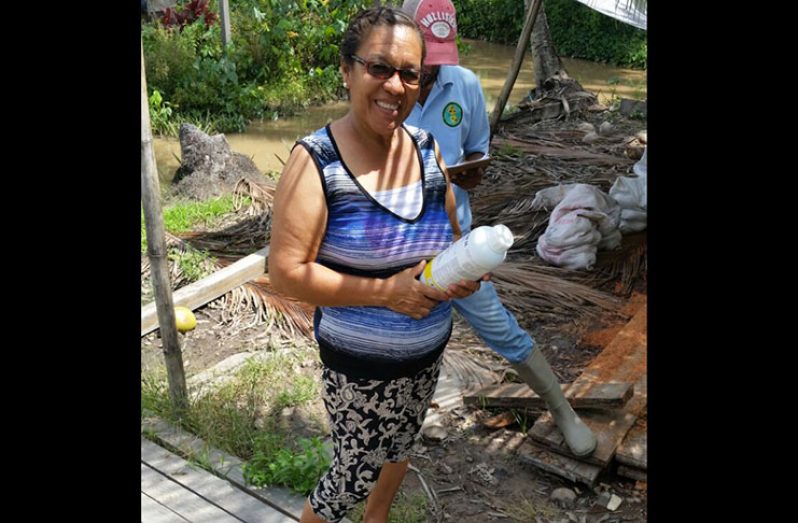THE National Agriculture Research and Extension Institute (NAREI) is continuing its distribution of chemicals to reduce the Red Palm Mite (RPM) population in the Pomeroon, Region Two- Guyana’s largest coconut producing district.
Between October 2016 and June 2017, a total of 633 farmers of the 713 coconut farmers in the district received chemicals accounting for 10,600 acres. Efforts are ongoing to ensure

the other farmers also benefit from this initiative, NAREI said in a release. The chemicals being distributed by NAREI are: inisan; triazophos; and abamectin.
The distribution of chemicals in an ongoing process since the RPM population cannot be eliminated but reduced. In addition, ever so often farmers are either expanding their acreage or new persons are joining the industry. And, importantly, farmers need to ensure proper farm sanitation.
There are about 5000 acres of coconut farms under cultivation for dry nut purpose in the Pomeroon River. Most of these acres are old estates, which are poorly maintained and manage, abundant, poorly drained and shows evidence of poor husbandry practices with little or no insect pest management. The unsanitary condition of many farmers will negatively impact production in the district.
For instance, a recent study conducted by NAREI showed a decline in production in 2016 from 2105. This was caused by a number of factors including the RPM infestation. Thanks to NAREI’s intervention and Government’s allocation of $49M to purchase and distribute chemicals, production had increased during the same period in 2017.
However, production will only be maintained and rise further if coconut farmers give urgent attention to other faction such as improved drainage, good husbandry practices, fertiliser and insect pest management programme, along with new cultivation with younger trees. It is important to note that the application of the chemicals to the trees would not have an immediate impact in coconut production. Increased production would be observed during the next bearing of coconuts.
In June 2017, NAREI attended a meeting held by the Pomeroon Exporter Producers Association (PEPA). One of the main issues raised by farmers is market availability for the expected rise in coconut production and other crops since this can lead to a drop in price. This will affect their livelihood. At present some farmers complain that water nuts are being over mature (getting hard) on their trees since the main buyers are receiving sufficient supply. This is evidence that coconuts are readily available in the district.
Farmers believe that the owners of bottling plants could increase their bottling operations and set a fixed price for water nuts throughout the year. The current low supply of dry nuts was also raised and farmers were advised on the importance of good husbandry practices and farm management in order to maintain and increase dry nuts production.



.jpg)








